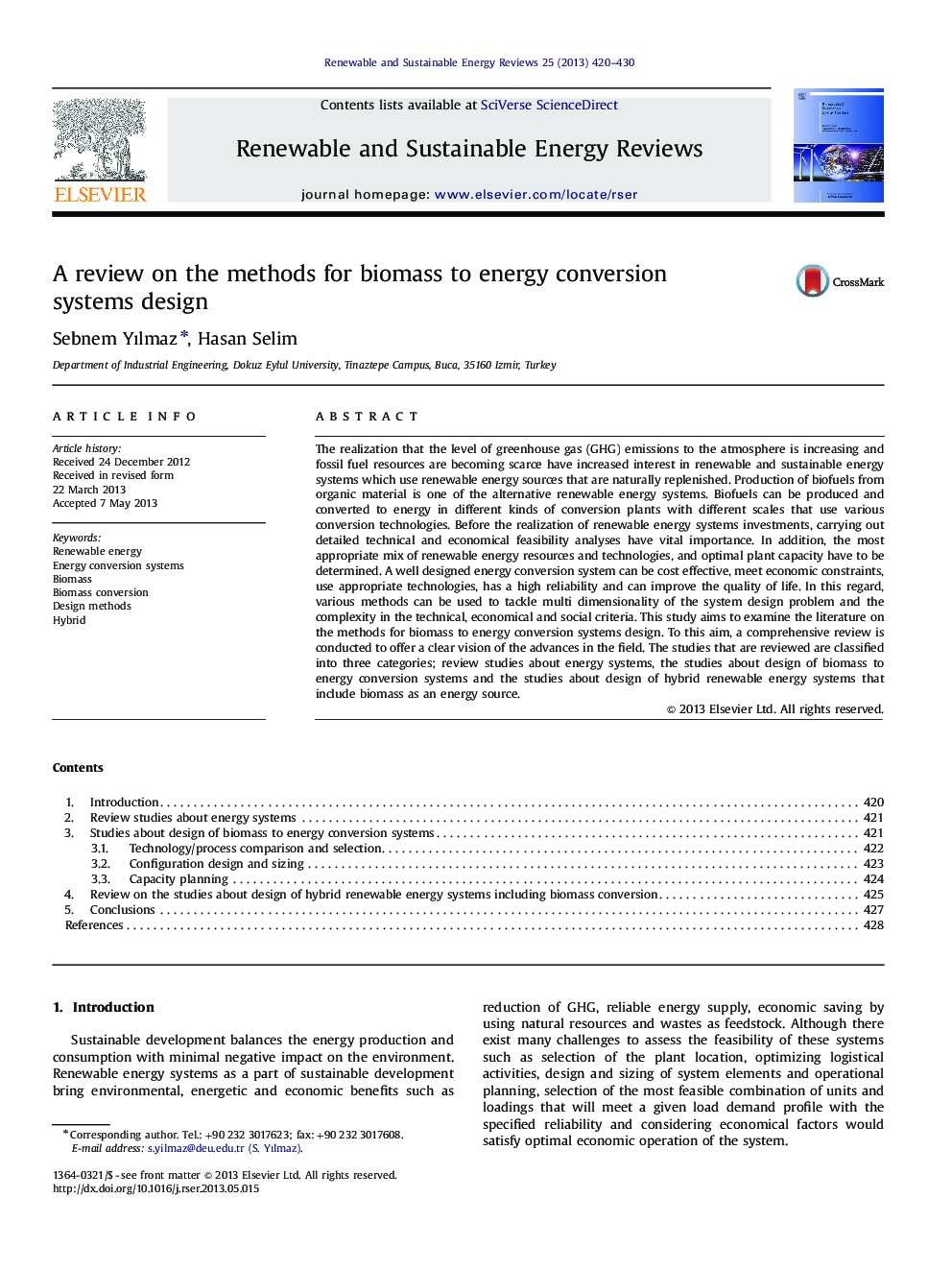| Article ID | Journal | Published Year | Pages | File Type |
|---|---|---|---|---|
| 8121650 | Renewable and Sustainable Energy Reviews | 2013 | 11 Pages |
Abstract
The realization that the level of greenhouse gas (GHG) emissions to the atmosphere is increasing and fossil fuel resources are becoming scarce have increased interest in renewable and sustainable energy systems which use renewable energy sources that are naturally replenished. Production of biofuels from organic material is one of the alternative renewable energy systems. Biofuels can be produced and converted to energy in different kinds of conversion plants with different scales that use various conversion technologies. Before the realization of renewable energy systems investments, carrying out detailed technical and economical feasibility analyses have vital importance. In addition, the most appropriate mix of renewable energy resources and technologies, and optimal plant capacity have to be determined. A well designed energy conversion system can be cost effective, meet economic constraints, use appropriate technologies, has a high reliability and can improve the quality of life. In this regard, various methods can be used to tackle multi dimensionality of the system design problem and the complexity in the technical, economical and social criteria. This study aims to examine the literature on the methods for biomass to energy conversion systems design. To this aim, a comprehensive review is conducted to offer a clear vision of the advances in the field. The studies that are reviewed are classified into three categories; review studies about energy systems, the studies about design of biomass to energy conversion systems and the studies about design of hybrid renewable energy systems that include biomass as an energy source.
Related Topics
Physical Sciences and Engineering
Energy
Renewable Energy, Sustainability and the Environment
Authors
Sebnem Yılmaz, Hasan Selim,
